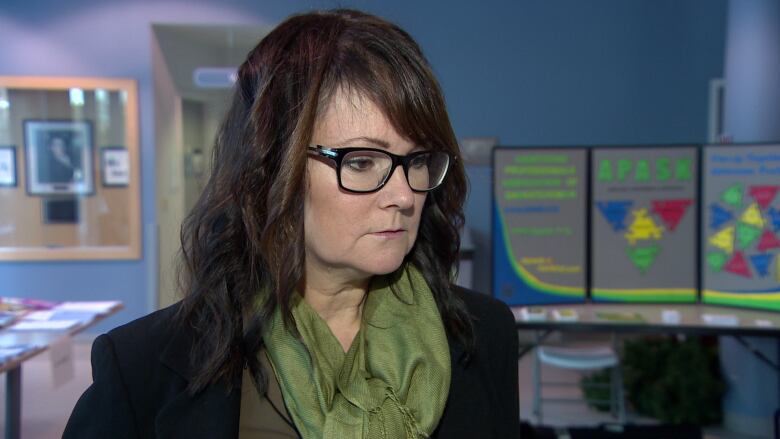'It's like shouting down a well': Mother of overdose victim says rural crime needs to be tackled at roots
Throne speech's lack of focus on addictions and mental health disappoints advocates

A direction to tackle rural crime with more police enforcement represents a continued failure to make decisions based on the evidence, according to one Saskatoon mother and mental health/addictions advocate.
"Until we reduce addictions and help mental health, I don't think we're going to see much of a change in the crime stats in Saskatchewan," said Marie Agioritis.
Agioritis has advocated for a change in approach in treating addictions as a health care issue, rather than a criminal one, since the death of her son almost four years ago due to an overdose.
The Sask. government's throne speech emphasized police enforcement in addressing crime and made little mention of drugs and addictions. Agioritis said it left her feeling cold.
"I was really disappointed," she said. "It was like shouting down a well and all you're hearing is the sound of your own voice coming back up."
Police constable says chaos could get worse
Wednesday's throne speech said improving safety is a priority of the Saskatchewan government. As part of that safety response, the province said it is looking to improve policing visibility and response times. It also noted it has moved to tighten up impaired driving laws and has committed $10 million to the Saskatchewan Guns and Gangs strategy.
Matt Ingrouille is a police constable, founder of a non-profit sayKNOW.org and also runs a podcast that educates people about the face of addictions.
Right now, people struggling with addictions are pushed into breaking the law because of their need to keep buying illicit drugs, he said.
"We know addiction is a symptom of trauma, neglect and abuse," he said, explaining these are major issues pushing people into the path of addiction.
When police are called to the scene of a neighbourhood, with people concerned about drug dealing going on in the house next door, their job and their duty is to deal with the problem, he said.
He agreed with Agioritis that there needs to be a recognition of drug addiction as a health care issue, to tackle the problem at its roots.
"If we're not going to make dramatic policy changes that's not going to reduce these issues, then yeah, you're going to have to keep throwing money at policing," he said, predicting this will simply lead to more incidences of gang violence and home invasions.
"The chaos is going to keep getting worse and worse."
Jails can increase harm, says professor
According to Dr. Rebecca Haines-Saah, an assistant professor with Community Health Sciences at the University of Calgary, the evidence suggests that greater police presence and arrests of more people for substance abuse can be related to worse outcomes.
It typically leads to continued drug abuse in jail and overdoses following incarceration, for instance, she said.
"We like to think locking people away solves the harm, but it actually increases the harm in many ways."
Haines-Saah said governments may do better to address rural crime with a holistic approach.
"In rural contexts, when there is high substance use, I would think about social isolation and poverty as other things putting people at risk," she noted.
Need some 'real solid changes'
The throne speech did touch on both mental health issues and drug addictions, noting that there was a new psychiatric hospital introduced in North Battleford and pointing out the government has introduced a Take Home Naloxone kit program to address opioid-related overdose death.
Agioritis said rather than putting more emphasis on policing, she would hope to see a health task force struck, to look at addictions and mental health, with health professionals, policy and criminal justice experts and people with "lived experience" all offering their insights.

She said this is a direction that may actually make a dent in crime.
"You have to look at the root cause and when you don't do anything to effect root causes, you're not going to see the changes and we need some real solid changes."

